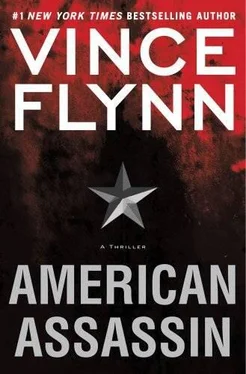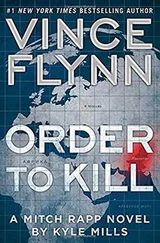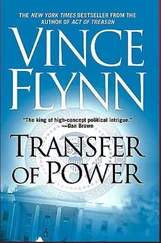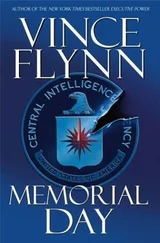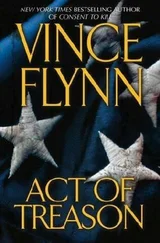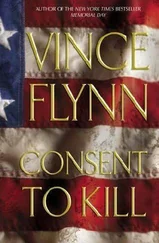Two men came out of the supermarket-big, burly guys in uniforms who stopped just out of his reach. Car tires were now squealing and engines were roaring as vehicles closed in from three directions. Hurley turned, with the idea of running back toward the hotel, but there were two more men hoofing it up the sidewalk. One of them had a big German shepherd on a leash. That’s new, he thought, never having seen a police dog in the city. In less than five seconds he was surrounded by ten men and three sedans. Six of the men were wearing police uniforms and four were in civilian attire. The civilians had pistols drawn. They could be either part of a militia or detectives, or worse, Syrian intelligence officers. The uniformed police were wielding wooden truncheons.
Interesting, Hurley thought to himself. Not a single one of them attempted to lay a hand on him. Hurley calculated the odds while he slowly reached for his cigarettes. Even if he had had a gun, he wasn’t sure he could have gotten himself out of this jam. They all looked nervous, which in itself told him something. Someone had prepped these guys. Told them to keep their distance, which was not standard operating procedure in this part of the world. Normally it was club first and ask questions later.
Hurley lit his cigarette with the steady hand of a brain surgeon. He greeted the men in Arabic and asked, “What seems to be the problem?”
“Good morning,” announced a smiling man in a three-piece suit who appeared just beyond the phalanx of men. “We have been waiting for you, Mr. Sherman.” He glanced ever so slightly at the two men behind Hurley and gave a them a nod.
Hurley turned and blocked the first blow with his left hand, wrist to wrist, and then delivered a palm strike to the man’s nose. He ripped the truncheon from the man’s hand and ducked just in time to miss the blow from his partner. The man was out of position from swinging so hard and had left his ribs exposed, so Hurley rammed him with the truncheon and sent him to the ground. Just as he turned to face the others he was cracked across the head and then the back. He dropped to one knee and then to the ground as the batons and feet came crashing down. As they took the fight out of him, Hurley lay bleeding and hoping that Richards had enough time to run.
RAPP rocked the clutch of the little silver Renault Clio and closed the gap between himself and the next car waiting to get through the checkpoint to Beirut proper. It was his third checkpoint since the Syrian border. The little 1.2-liter engine was about as big as the one on his dad’s old John Deere riding mower. If he had to run from the authorities it would be a very short chase. He’d been in line now for about fifteen minutes, inching his way forward a few feet at a time. The car didn’t have any air-conditioning so he had the windows rolled down.
Rapp slapped his hands on the steering wheel to the beat of some atrocious techno music that he’d picked up at the airport. The title of the album was Euro Trash, and he agreed. He would have preferred a little U2, or maybe some Bob Seger, but the idea here was to make them think he was French, not some American assassin on safari. Third in line now, he leaned out the window to get a better look at the teenager holding the AK-47 assault rifle. Rapp had no idea which faction he belonged to, but the kid seemed calm enough. The first checkpoints were manned by the Syrian army, and then as he neared the city the militias were in charge.
He’d found a pay phone at a gas station along the way and called in to check on things. The automated voice told him his room was ready and gave him the address and the location. Rapp wrote it down, memorized it while on the road, then crumpled it up and threw it out the window. The file told him to expect four checkpoints, counting the border. Each one would cost him between five and twenty dollars. So far whoever had put it together was right on the mark.
The line snaked ahead and Rapp yawned. It was finally catching up with him.
After sinking a hollow-tipped parabellum into Ismael’s head, Rapp had steadily retreated, keeping his gun leveled at the woman, who was temporarily frozen with shock. Rapp wasn’t going to shoot her and wasn’t worried that she would shoot him. He kept his weapon raised to conceal his face and to deter her from looking too closely at him. People in general did not like to look down the barrel of a loaded gun. When the woman finally glanced down at the man who had threatened her life only moments before, Rapp turned and ran.
He didn’t turn the corner because he did not want to head back down the street where Ismael had just fired the Uzi. Half the block was likely to be looking out their windows, and a few of them would be on the phone with the police. So he ran straight, at an all-out sprint, for two blocks, the gun at his side. Then he took a hard right turn and stopped. His breathing was heavy but under control. He holstered the pistol while he looked for a place to reverse his jacket. Twenty feet ahead on his right there was a stoop that would offer some concealment. Rapp ducked into the shadows, tore off his overcoat, and turned it inside out. He tossed the clear black-rimmed glasses to the ground and mussed up his slicked-back hair before emerging from the shadows wearing a khaki trenchcoat. He headed back to the corner he’d just rounded. The distinctly European police klaxon could be heard screeching in the distance.
Rapp calmly crossed the street, looking to his left. He could just barely make out the woman. She had been joined by three or four people. Rapp acted as if he didn’t notice. After he cleared the intersection he picked up the pace, but not so much as to draw attention. He looked like a man out for a brisk walk. The Rhone was now only a block and a half in front of him. With each step the sirens grew in force, but Rapp wasn’t worried. They would go to the body first and then they would check the damage caused by the Libyan’s Uzi and then they would begin to look for a suspect.
Rapp reached the river, which at this point was fairly wide. He turned right and after looking up and down the block to make sure no one was watching, he casually slid his left hand between the folds of his jacket and grabbed the Beretta he’d used to kill Ismael. Rapp waited until he was in the shadows between two street lights and then drew the gun. He flipped it casually a good twenty feet into the ice-cold water and kept moving. A block after that, he disposed of the second gun, then had to make his first big decision. Just on the other side of the river, one mile away, was Geneva International Airport. If he hustled, he might be able to catch the last flight out to Paris.
Airports made him nervous, though. There were always cameras and police, and if you were going to get on a plane you had to buy a ticket and show a passport, and that left a trail. His legends were to be cultivated and protected, not used for convenience’ sake. So he turned back for the rental car and rehearsed what he would tell the police if they stopped him. Fortunately, the story was never needed. Police were flooding the area, but they were still headed to the crime scene. On his way back he didn’t see a single police car heading out to look for suspects. When he climbed behind the wheel of the rental car he checked his stopwatch. Four minutes and thirty-seven seconds had elapsed since he’d taken refuge behind the mailbox. Not bad.
Once behind the wheel he had a lot of options. The primary plan was to cross the border into France and then drive to Lyon, but he was too pumped-up, and with the border crossing so close, they might be looking for a man of his general description. Again, there was no longer any hard evidence that could tie him to Ismael’s death, but why push it?
Читать дальше
